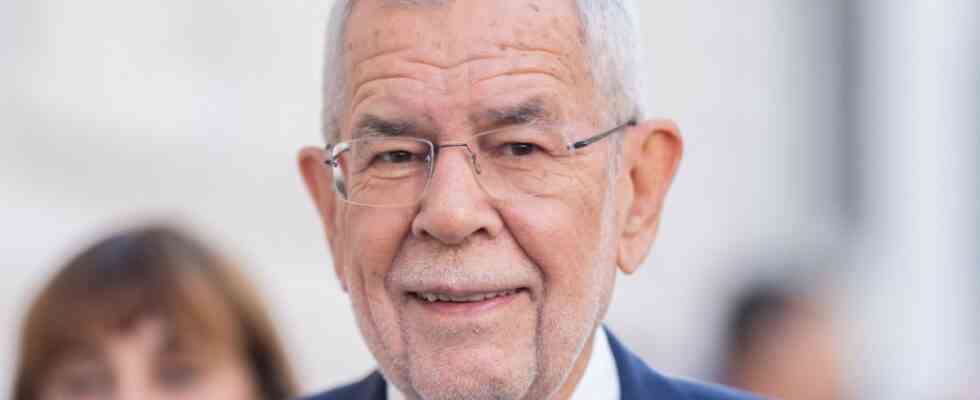The Austrian Federal President does not have to go to the run-off election: Alexander Van der Bellen, who faced six opposing candidates in the election on Sunday, was re-elected in the first attempt with 54.6 percent of the votes. The 78-year-old Tyrolean saves himself the humiliation of being the first incumbent to stand for re-election and not get an absolute majority. In the past few weeks, pollsters had thought that was at least possible.
The relief at the result could not be ignored in the Van der Bellen camp. Former federal presidents almost always got more than 60 percent when they were re-elected in the Second Republic. But the course of events in this campaign had been unusual even for an established and seemingly unrivaled incumbent who had earned much respect in his six years of service. Instead of serious opponents from established parties represented in the National Council, this time, with the exception of one candidate from the FPÖ, mainly representatives of small parties and non-party individualists stood for election.
The rights and their candidates together came to around 30 percent
The FPÖ politician Walter Rosenkranz got 19.1 percent of the vote on Sunday, doing better than the polls had predicted. The field of the other five applicants was extremely mixed. Three right-wing populist candidates, the tabloid columnist Tassilo Wallentin (8 percent), the head of the corona denier party MFG, Michael Brunner (2) and the ex-FPÖ politician Gerald Grosz (6), got 16 percent together. If you add the right-wing populist FPÖ to that, the right-wing achieved more than 30 percent overall.
According to an analysis of the voting motives in the ORF, two-thirds of their voters stated that these candidates represented a “counterbalance to the system”. Two applicants from the left-wing spectrum also competed, including the young doctor and rock musician Dominik Wlazny, who scored particularly well in big cities (8 percent), and the shoe manufacturer Heinrich Staudinger from the Waldviertel (1.6).
From the beginning, the SPÖ and ÖVP did not put forward any candidates of their own, but they did not recommend Van der Bellen, who originally came from the green camp, either; After all, the Neos clearly backed the incumbent, who was elected in 2016 and sworn in for a first term in 2017. This also triggered internal discussions.
Alexander Van der Bellen’s supporters celebrate his victory in Vienna on Sunday.
(Photo: Martin Juen/IMAGO/SEPA.Media)
In its commentary after the election, the press demanded that the modalities urgently needed to be changed: bizarre candidates and strange topics had pushed aside the real problems of the time; The fact that almost all other parties did not enter their own man, let alone a woman, shows the lack of enthusiasm for a vibrant democracy.
Van der Bellen had also refused the television duels of all candidates as well as the elephant rounds, for which he also received criticism because he had left the discourse to democracy skeptics and demagogues. The TV election campaign was dominated by politicians and newcomers who ranted about the dismissal of the government, leaving the EU and the abolition of all sanctions against Russia, got angry about Covid measures and attacked the “establishment”.
Newspaper commentaries spoke of “clowns” and “fun politicians”. Of the default commented on the election result with the biting statement that the challengers had made “honest efforts to damage the office. The radicalism that came to light in the fight for public attention left one at a loss at times and even intimidated”.

